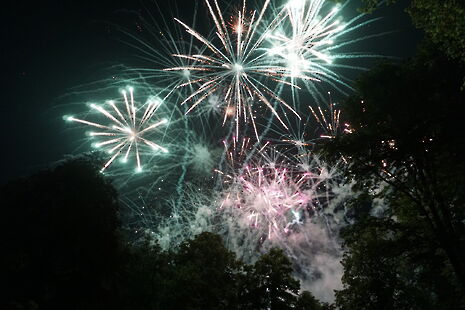Editorial: Learning from the lows, looking beyond the highs

Cambridge has a habit of making students forget how bad it can be. When being greeted by friends in the immediate aftermath of a mediocre final exam, cava seemingly washes away the sins inflicted by Easter term. May Week is perfectly placed, both as the motivator throughout the dark library days of the previous six weeks, and to mark the last memories we all hold of the academic year – or, in the case of Finalists, of our time here.
Cambridge is notoriously and unapologetically fast paced. Short terms, with just a few days for each new topic, means a turnover of information that passes too quickly for our brains to fully process. But every eight weeks it’s over, and a collective sigh rings out. And we move on to the supervision essay, the next obstacle, the next term, the next year. Short sharp cycles of incredible highs and exhausting lows.
It is not only in the juxtaposition between exams and May Week that real experiences and opportunities for reflection and rebuilding get lost. Many of the constituent parts of the university have made a habit of entrenching the fast turnover of information that is so prevalent in our academic lives.
This term saw tensions rise among prominent student groups as debate raged over the role of NUS, and Cambridge students went to the polls to decide on CUSU’s affiliation to the national body. But in the aftermath of the vote to remain in NUS, it is not enough for CUSU to celebrate its affiliation and not learn from the experiences and voices raised in the referendum process. The new sabbatical team have a duty to all of the Yes to Disaffiliation campaigners to hold the NUS fully accountable for the allegations pressed against them, and to listen to the concerns of the 2,880 students who voted to leave – a figure 1,200 higher than the number that voted for incoming president Amatey Doku.
A clear mandate was given to Doku in his presidential election, but with it comes an obligation to fully engage with the issues that CUSU has faced and, in some instances, left unresolved this year (see Comment).
This rapid turnover of events and information is reflected in the politics of the modern day, and, regardless of the results of the EU referendum, there are serious democratic questions to be asked of the structure and functioning of the EU (see Varsity’s interview with Chris Bickerton). A vote to Remain is not a complete endorsement of the EU, but, as with the NUS, it is a persuasive argument that a seat at the table is worth having – so long as the outcome is not complacency but of reform from within.
To refocus back into the microcosm that is Cambridge, reform is possible, even with the undeniable struggle against institutionally embedded discrimination which a range of minority groups face. It takes dedicated individuals, mobilisation, collective action, and acute self-awareness of others to overcome these challenges. It is easy to allow May Week to be an indulgent, even restorative time as a Cantab. However, as Varsity’s investigation shows, this extravagance itself has a considerable cost, which cannot be dismissed simply as a deserved frivolity in the aftermath of exams.
As Cambridge students, we need to challenge ourselves to reflect more upon our experience of our time here – on the university’s ability to make us forget about the bad bits – because nothing will change if the largest body of members of the university allow ourselves to be drawn into amnesia by the champagne and fireworks.
By all means, embrace and enjoy the undoubtedly incredible events over the course of this week. However, the journey that has led students to this point deserves to be reflected upon and interrogated. Cambridge is an institution that predates and will outdate us all, but it is ours, and its structures and aims are ours to change.
 News / CUP announces funding scheme for under-represented academics19 December 2025
News / CUP announces funding scheme for under-represented academics19 December 2025 News / Cambridge welcomes UK rejoining the Erasmus scheme20 December 2025
News / Cambridge welcomes UK rejoining the Erasmus scheme20 December 2025 Comment / Yes, I’m brown – but I have more important things to say22 December 2025
Comment / Yes, I’m brown – but I have more important things to say22 December 2025 News / SU reluctantly registers controversial women’s soc18 December 2025
News / SU reluctantly registers controversial women’s soc18 December 2025 Film & TV / Timothée Chalamet and the era-fication of film marketing21 December 2025
Film & TV / Timothée Chalamet and the era-fication of film marketing21 December 2025









